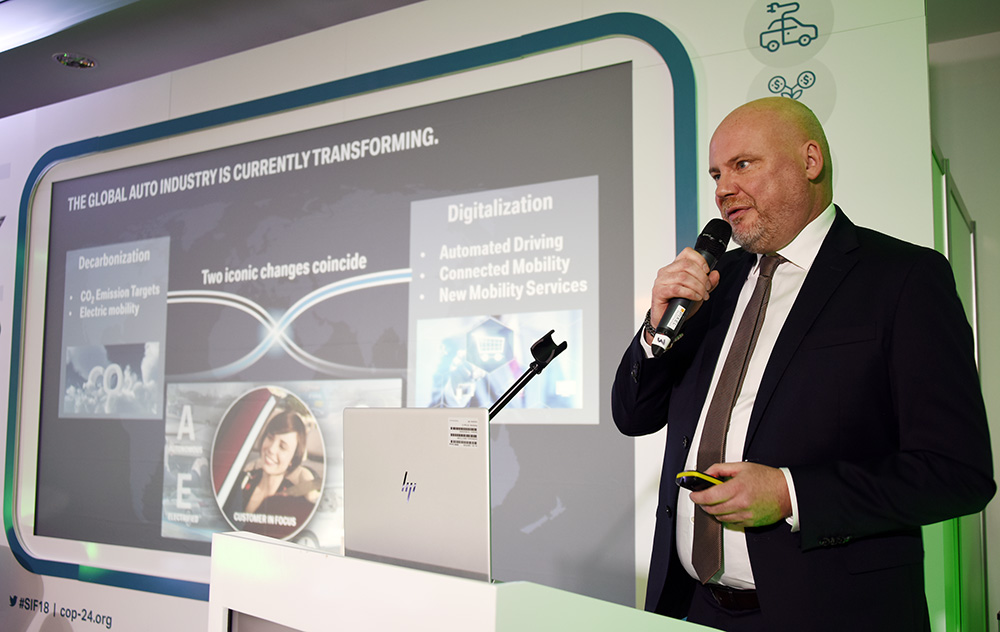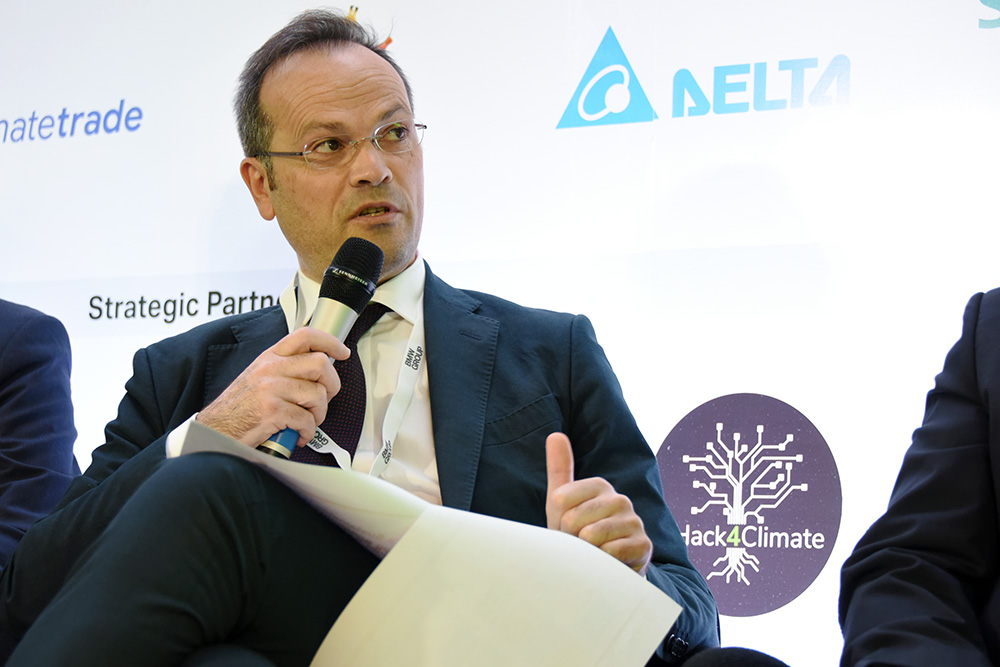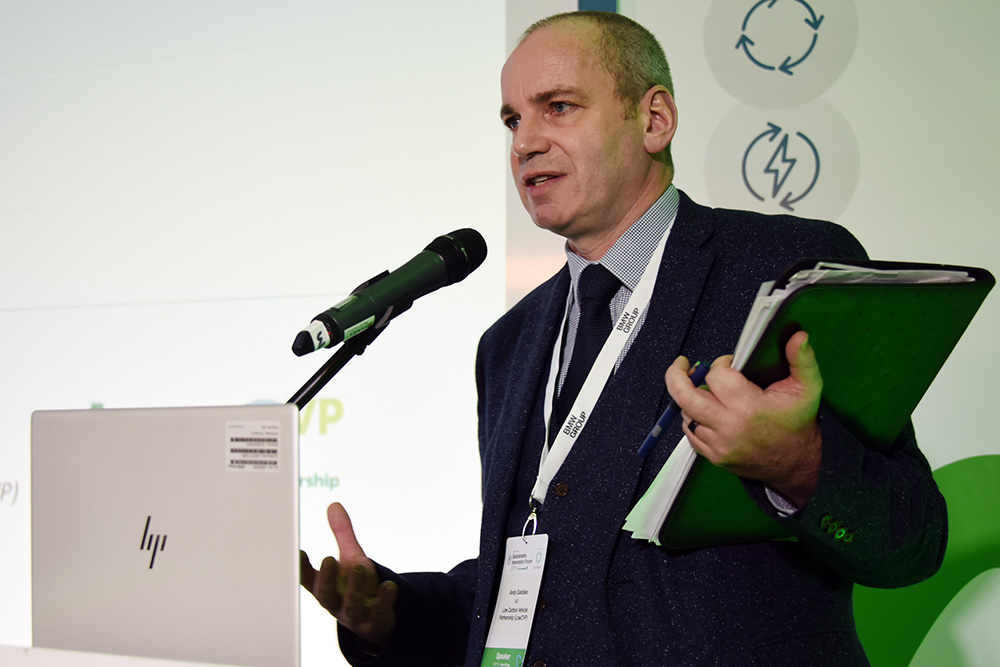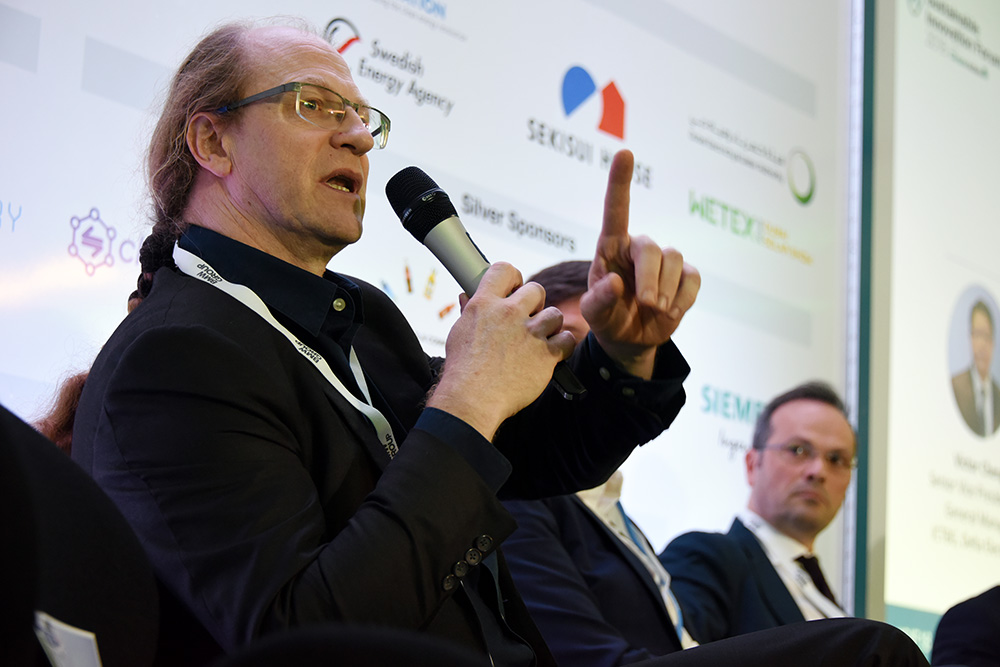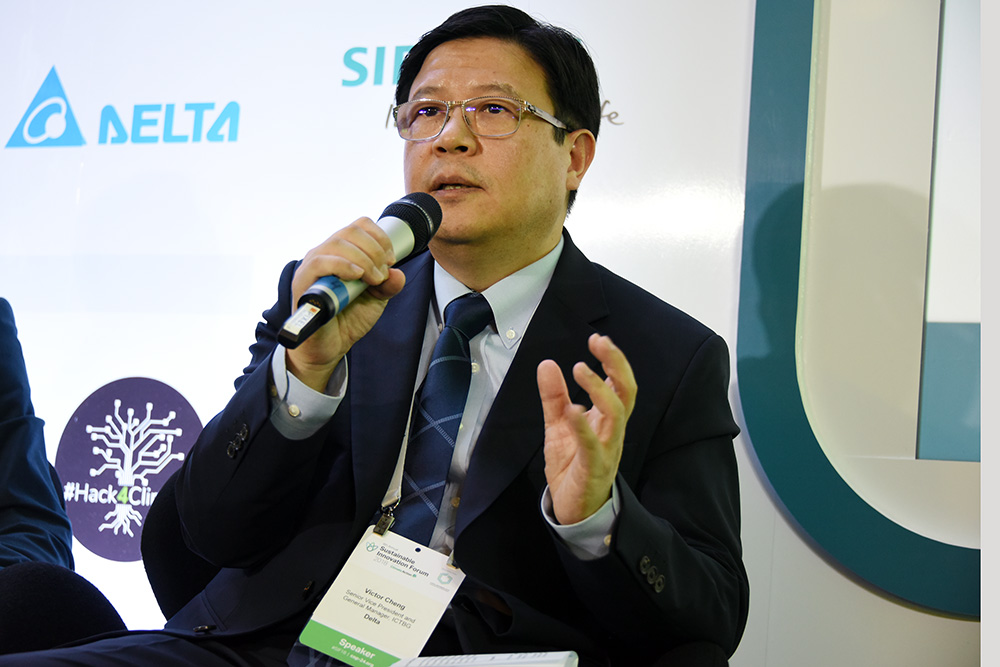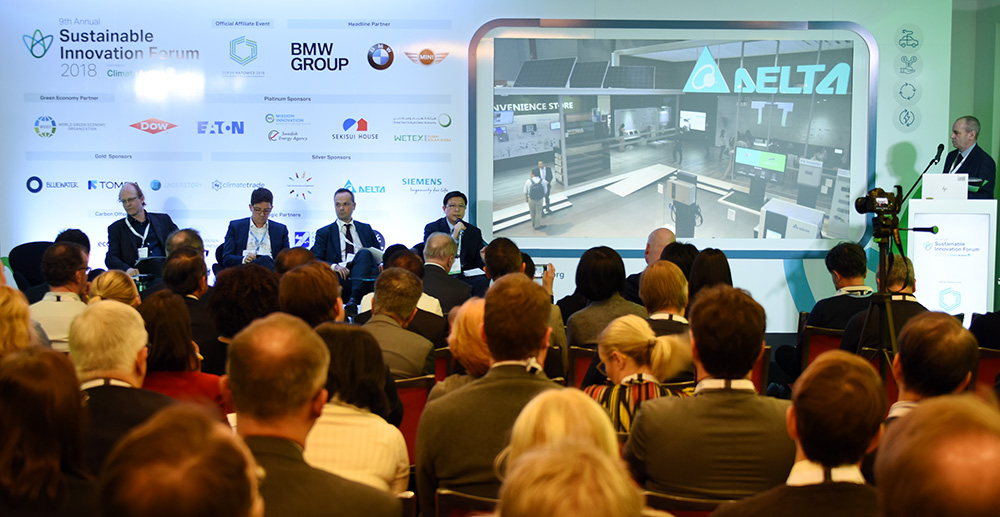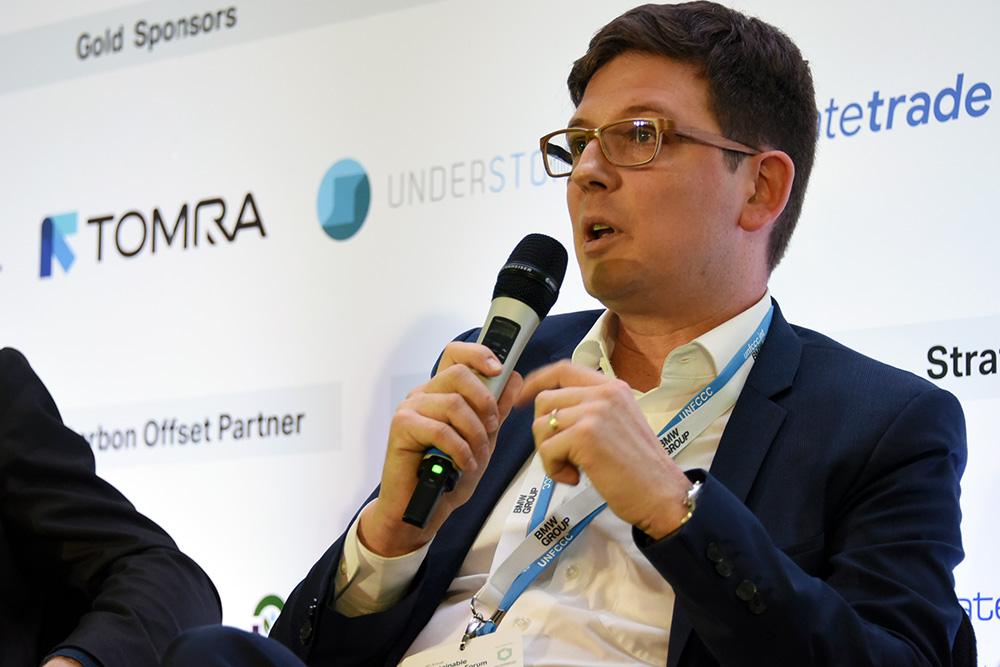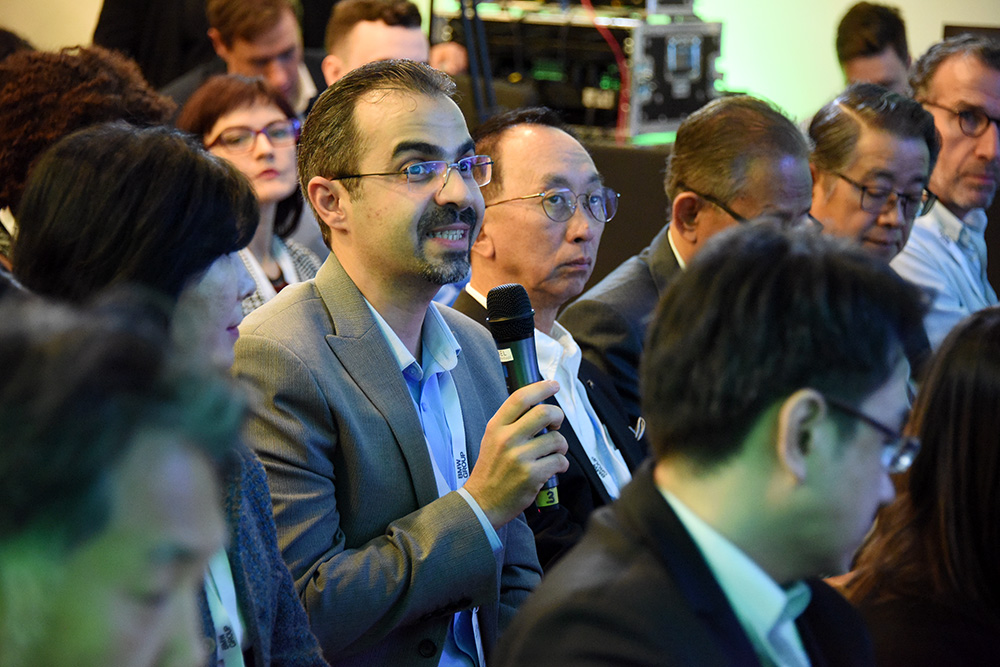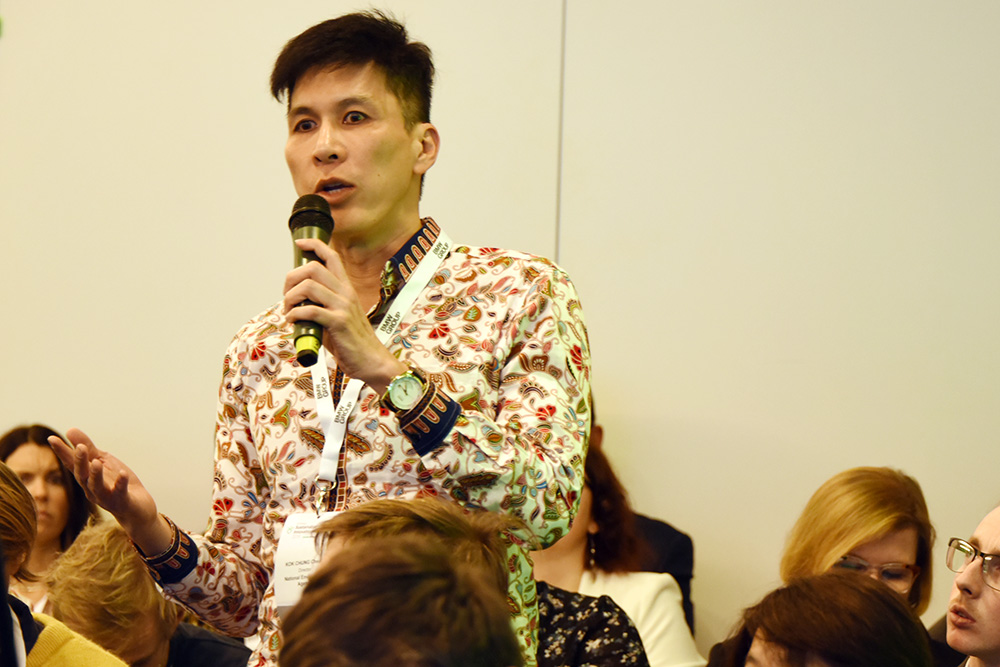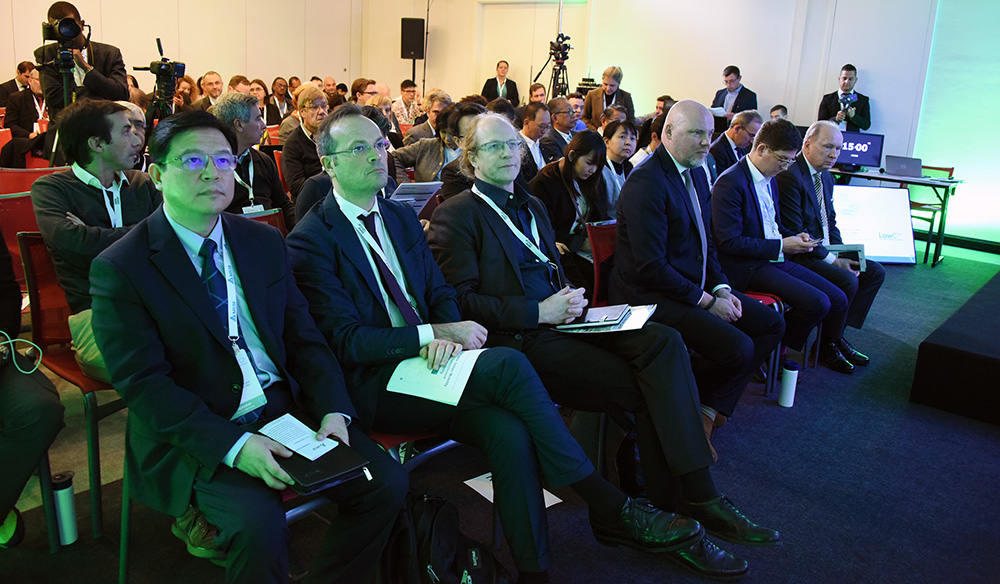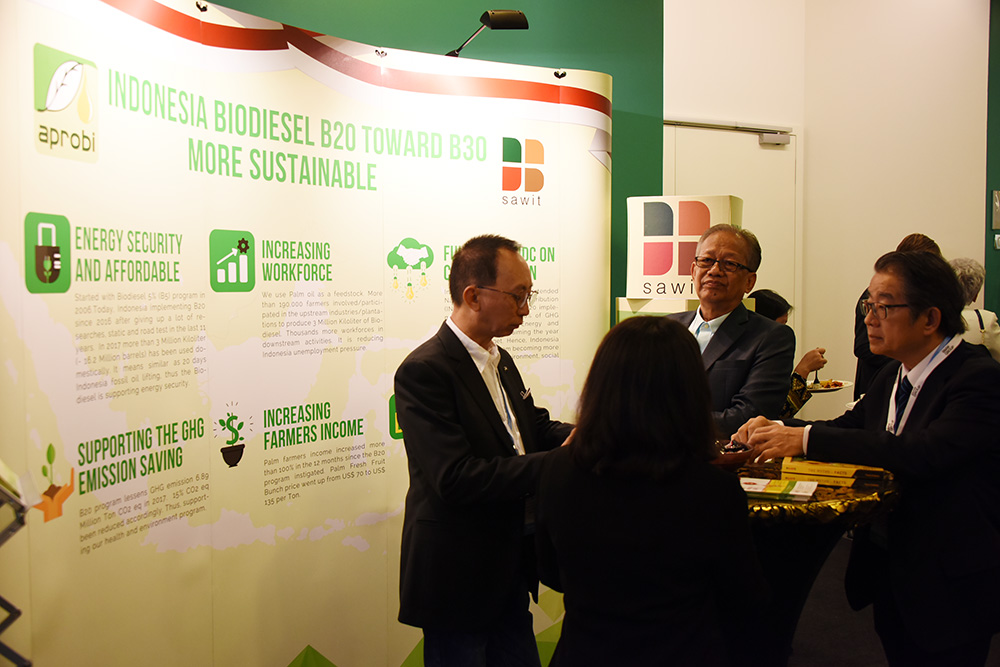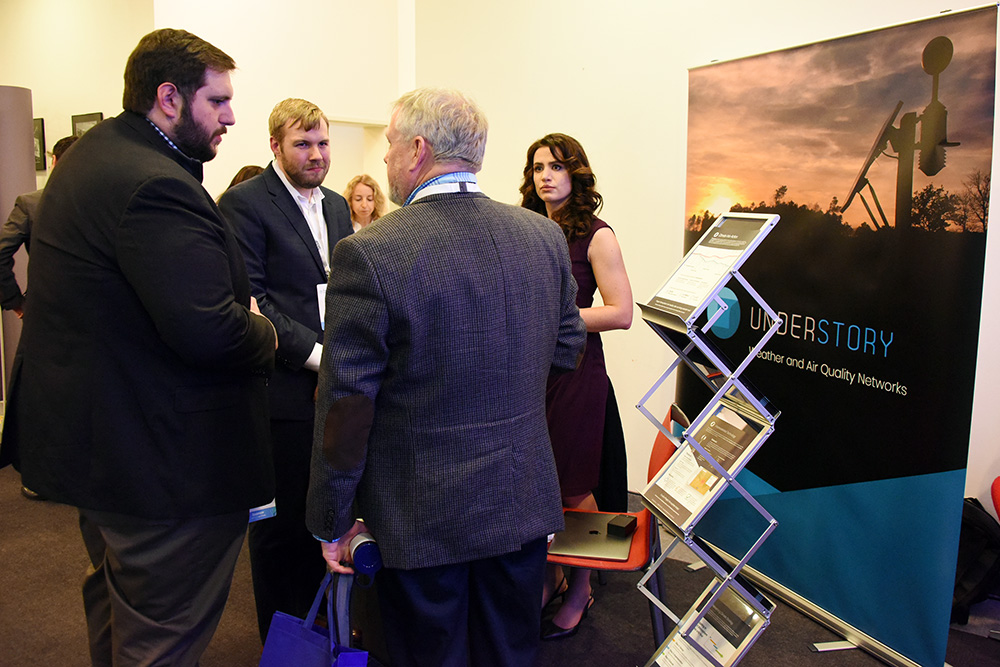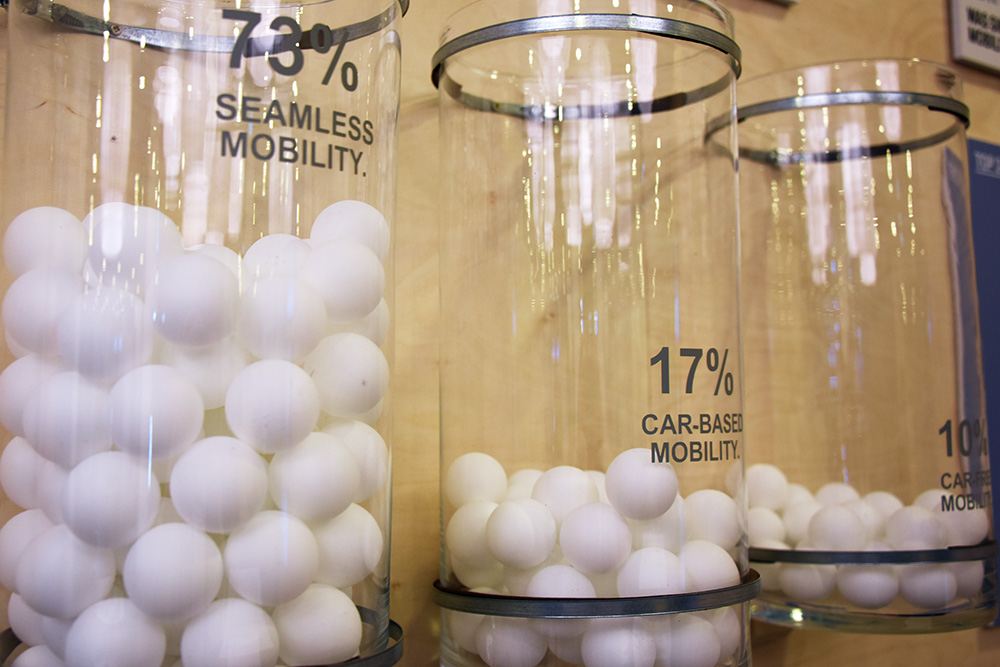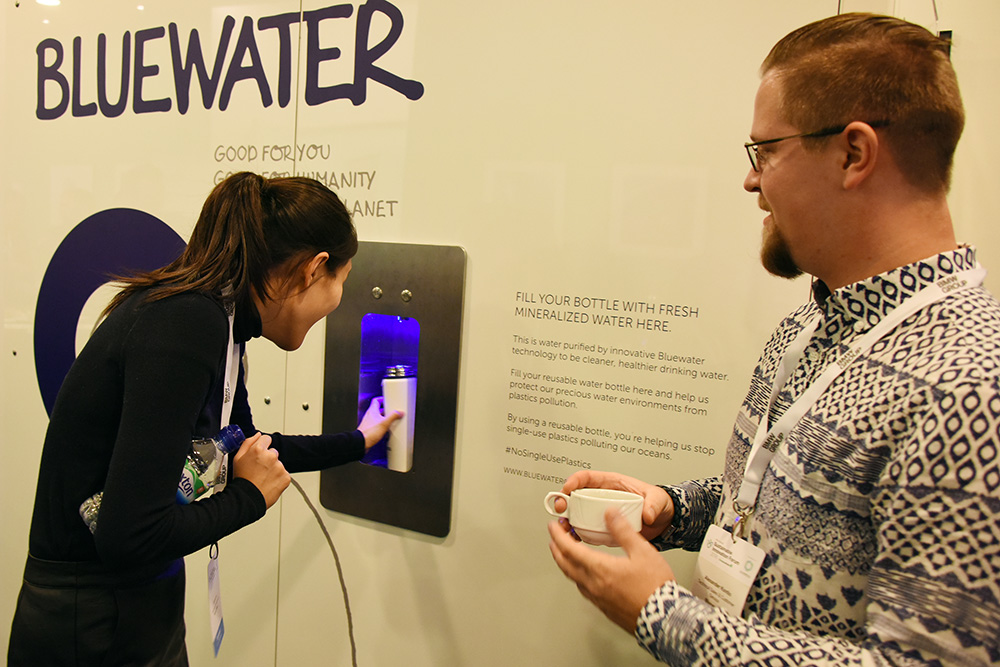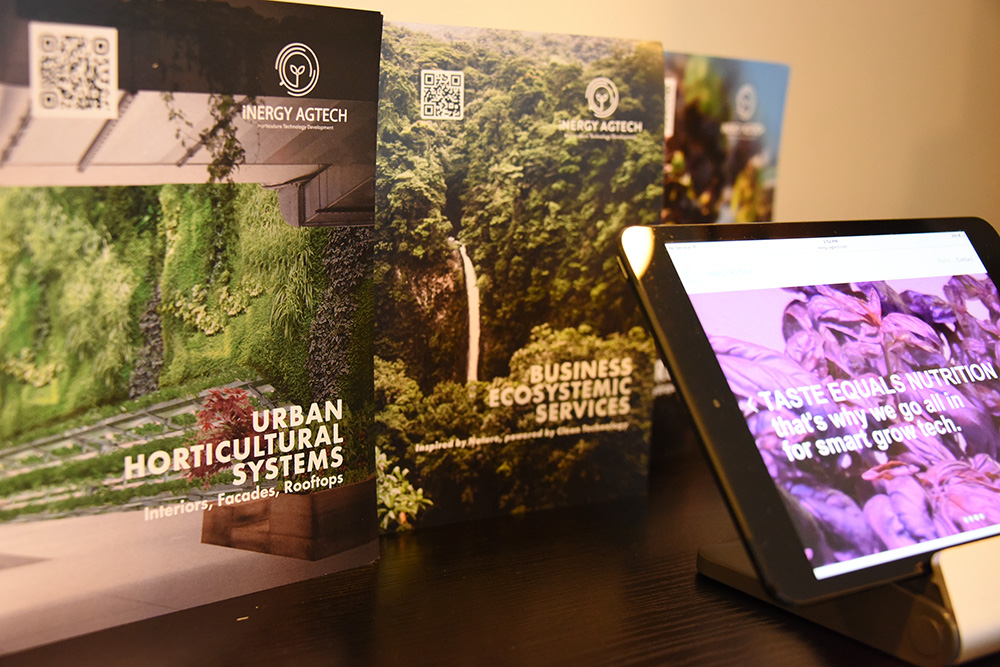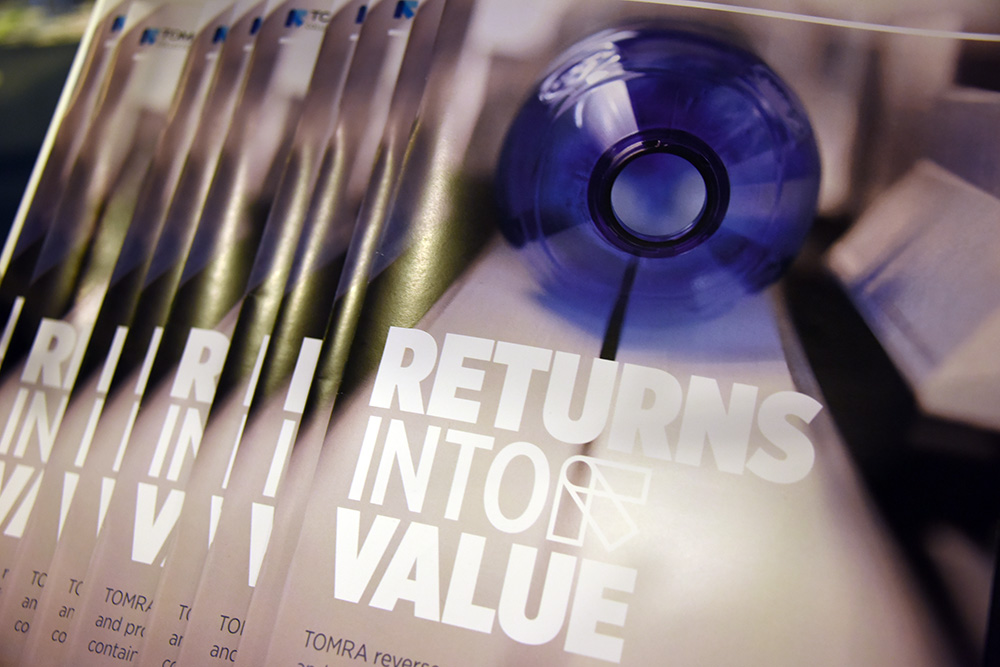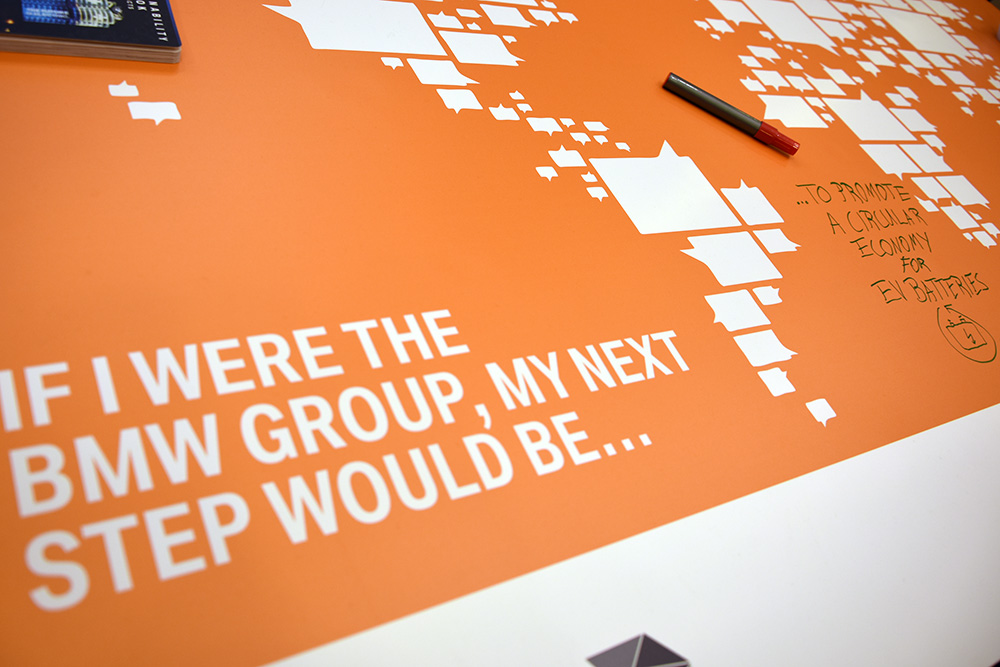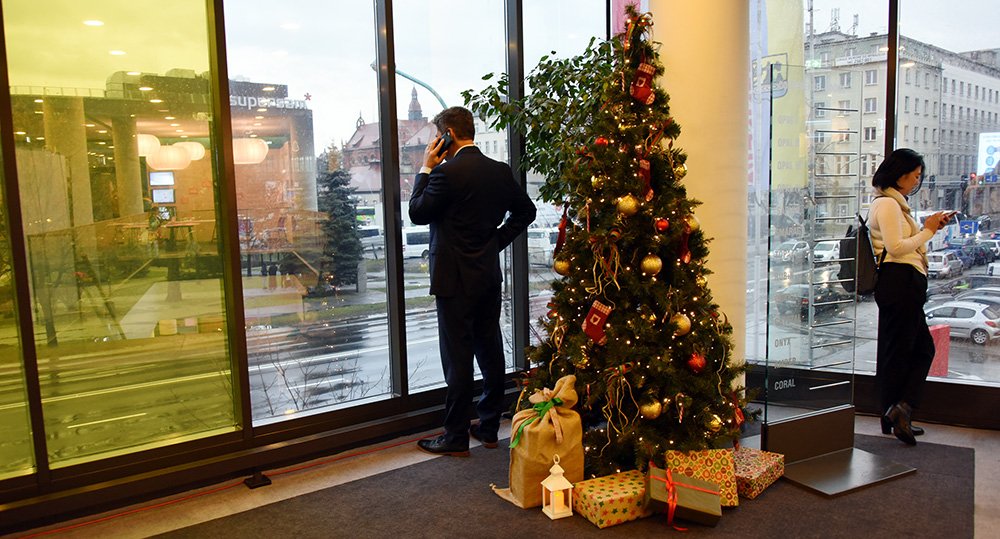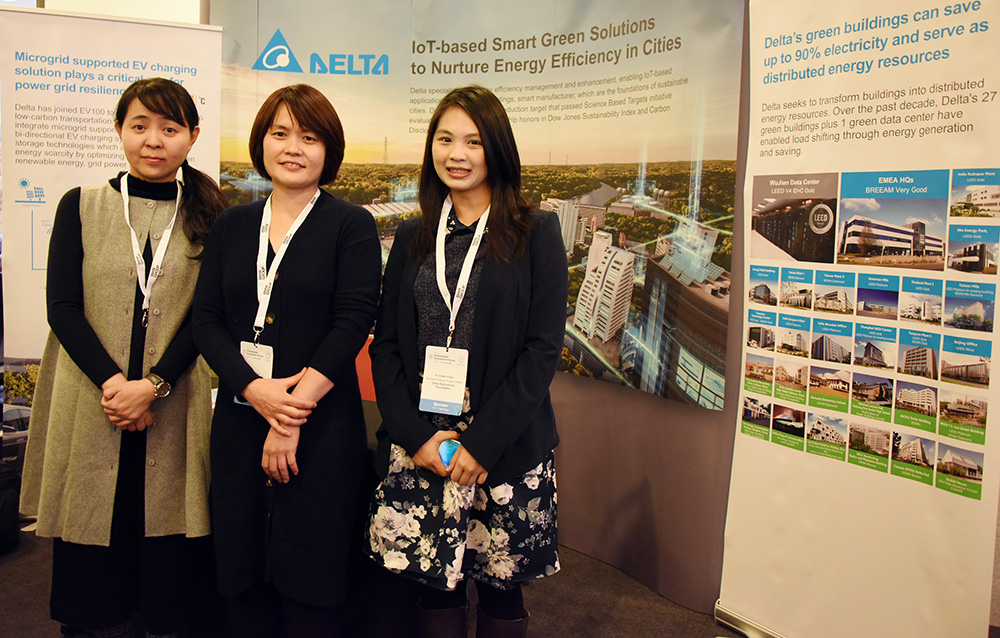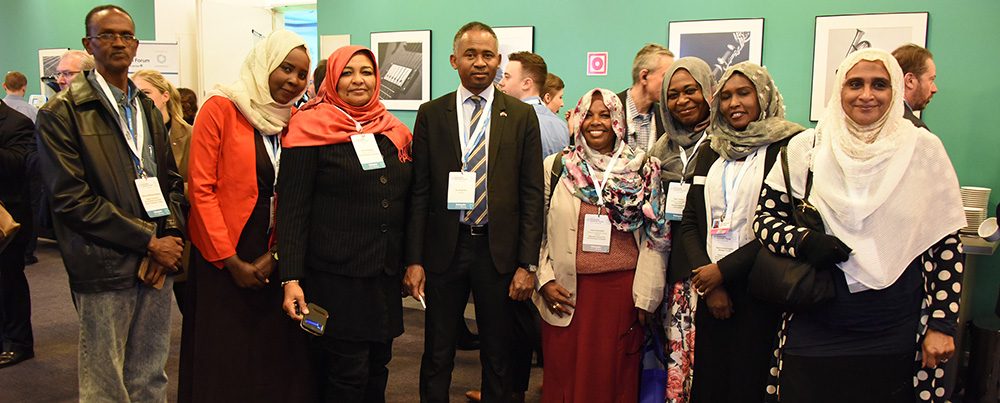Summary

Posted by IISD Reporting Services on Tuesday, 11 December 2018
The following event was covered by IISD Reporting Services on Sunday, 9 December 2018:
Photos by IISD/ENB | Natalia Mroz / Diego Noguera
For photo reprint permissions, please follow instructions at our Attribution Regulations for Meeting Photo Usage Page
Sustainable Innovation Forum 2018: Panel Session on Sustainable Mobility
Presented by Delta Electronics Foundation
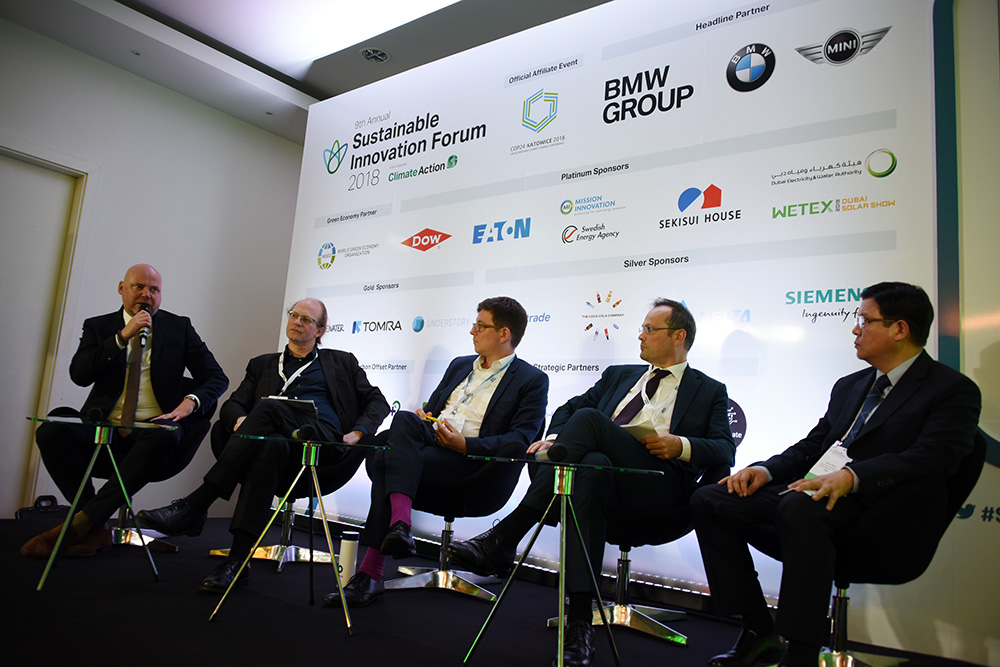
This event, held during the 2018 Sustainable Innovation Forum, brought together sustainable mobility experts to discuss: how to accelerate the deployment of electric vehicles, what cities are doing to support the demand for electric vehicles, how to fast track decarbonization in the transport sector, and how to overcome infrastructure and charging challenges.
Andy Eastlake, Managing Director, Low Carbon Vehicle Partnership (LowCVP), moderated the session, saying that the mobility sector needs to ensure innovations respond to users’ needs.
In a keynote presentation, Andreas Klugescheid, BMW Group, highlighted his company’s progress in decarbonizing the sector, reporting on BMW’s electro mobility portfolio since the creation of BMWi, a sub-brand of electric vehicles (EVs). He also highlighted improvements in battery technology that have led to longer vehicle ranges and cost reduction.
Victor Cheng, Senior Vice President and General Manager, Information and Communication Technology Business Group, Delta Electronics, shared his belief that, in addition to cooperation between governments, companies, cities and institutions, innovative technologies are needed for a sustainable future. He shared examples of clean energy and energy efficiency solutions deployed by Delta Electronics, and emphasized how the expansion of EV charging infrastructure is key to boosting EV adoption. He also noted how smart energy systems will be required to cope with the pressure that EVs will place on electricity grids, sharing how EV batteries can be used for household storage as an example.
Valentino Sevino, Director of Mobility Planning, Agency for Mobility, Environment and Territory, City of Milan, described Milan’s sustainable mobility plan and its four pillars: mobility, sustainability, innovation and efficiency. Within the plan, he highlighted that low-emission zones are playing an increasingly important role in reducing emissions, congestion and air pollution in the city. He said that Milan currently has 50 cars per 100 inhabitants, a rate that the city wishes to reduce. One means of achieving this, Sevino explained, has been through working hard to develop EV sharing services, which, he described, act as a “doorway to EV adoption.” Sevino also suggested Milan would like to engage the private sector in installing EV charging points.
Björn Hannappel, Head of GoGreen, Deutsche Post DHL, noted that DHL has had climate goals for the company since 2008, long before the adoption of both the Paris Agreement and the Sustainable Development Goals. He described five “I’s” needed to expand electric mobility: Innovation, particularly regarding trucks and aviation; Infrastructure, such as the expansion of charging networks; Information and transparency; Impulse, referring to customer demand; and Inspiration coming from greater leadership in the field. He also shared DHL’s goal to fully decarbonize by 2050 and experiences with electrifying its fleet, including how they acquired a car construction startup to produce effective electric delivery vans. Decarbonization, he explained, not only reduced DHL’s environmental footprint but was a means to increase profit and future proof their business.
Yann Francoise, Head of Climate, Energy, and Circular Economy Strategies, City of Paris, stressed the importance of sending consistent policy signals, citing Paris’ decision to ban diesel cars from 2024 as an example. He also called for the European Union to adopt similar progressive, long-term policies to assist the sustainable mobility transition, saying that waiting for manufacturers to innovate will be insufficient.
Moderator Eastlake invited panelists to discuss technological innovations and policy aspects that would encourage the uptake of electric mobility. Cheng stressed the need for improved battery technology to deliver more energy storage, faster charging and increased affordability. He also emphasized the need for more charging stations and a stable electrical supply. Sevino said the city of Milan is creating opportunities to provide the best solutions for citizens, and highlighted EV tests through a joint research center. Hannappel emphasized the need for better regulation, noting that it currently takes nine months to install an EV charging point in Germany.
In response to questions from the floor, panelists discussed: the circular economy of EV batteries, noting that their lifespan has been longer than expected and second-life usages such as electricity storage in warehouses; lower EV maintenance costs compared to combustion engine vehicles; the state of hydrogen fuel cell development, nothing that this technology is most promising for heavy duty and long-range vehicles; the need to reinforce electricity grids in rural areas to support EV uptake; and how potential consumer concerns about the asset devaluation of EVs may be mitigated by a more general transition away from privately-owned vehicles.
